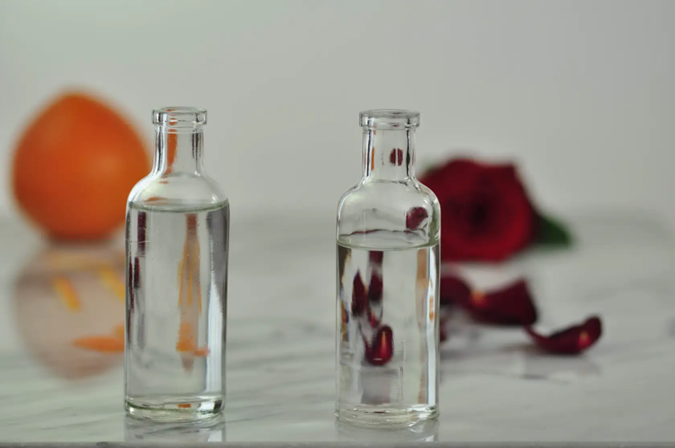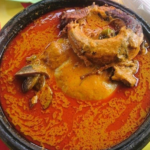Moroccan cuisine is renowned for its bold and vibrant flavors, with aromatic ingredients playing a crucial role in creating exquisite dishes. Among the various ingredients that contribute to the unique taste of Moroccan cuisine, orange blossom water and rose water stand out for their refreshing and fragrant qualities. These floral waters have been used in Moroccan culinary traditions for centuries, adding a touch of elegance and sophistication to both sweet and savory dishes.
Orange blossom water, also known as “zhar,” is derived from the distillation of orange blossoms. The blossoms are carefully harvested, and their fragrant oils are captured through a meticulous steam distillation process. The resulting liquid is a clear and aromatic water that carries the delicate essence of oranges.
One of the most common uses of orange blossom water in Moroccan cuisine is in desserts and pastries. It is a key ingredient in traditional sweets like Moroccan almond cookies, known as “ghriba,” and the decadent “Shebakia” – a sweet fried dough coated in honey and sesame seeds. The addition of orange blossom water infuses these treats with a subtle citrusy note that perfectly balances the richness of the ingredients.
Aside from desserts, orange blossom water is also employed in savory dishes. It can be used to enhance the flavor of tagines, a popular Moroccan stew known for its complex blend of spices. Just a few drops of orange blossom water can transform a simple tagine into a fragrant masterpiece, elevating the dish to new heights.
Similarly, rose water, or “mawared,” is another beloved ingredient in Moroccan cuisine. It is derived from the distillation of rose petals, capturing their captivating aroma and delicate taste. The process of extracting rose water has been practiced in Morocco for centuries, and its unique flavor has become synonymous with Moroccan culinary culture.
Rose water is often used in Moroccan pastries, where it adds a floral and aromatic dimension to the desserts. It can be found in classics like “Baklava,” a sweet pastry made with layers of phyllo dough, nuts, and honey. The addition of rose water in Baklava imparts a subtle perfume that complements the nutty flavors and provides a memorable taste experience.
In addition to sweets, rose water is used in refreshing beverages. Moroccan mint tea, or “atay b na’na’,” is a beloved drink in Moroccan culture, and rose water is a common addition to this traditional beverage. The combination of fresh mint, fragrant tea leaves, and a touch of rose water creates a soothing and aromatic concoction that is enjoyed throughout the day.
The versatility of both orange blossom water and rose water extends beyond the culinary world. These floral waters are also used in Moroccan beauty rituals and aromatherapy. They are known for their skin-nourishing and relaxing properties, often incorporated into facial toners, body sprays, and bath products. The natural fragrances of orange blossoms and roses have a soothing effect on the senses, making them popular ingredients in spas and wellness centers.
When exploring Moroccan cuisine or experimenting with new flavors, incorporating orange blossom water and rose water into your culinary repertoire can provide a captivating and refreshing experience. Their distinctive scents and delicate flavors have the power to transport you to the sun-drenched landscapes of Morocco, where the enchanting aroma of blossoms fills the air.
Whether used in desserts, savory dishes, or beverages, the addition of these floral waters brings a touch of elegance to any culinary creation. So, immerse yourself in the intoxicating scents and flavors of Moroccan orange blossom water and rose water, and embark on a culinary journey that tantalizes the senses and transports you to the vibrant world of Moroccan cuisine.








